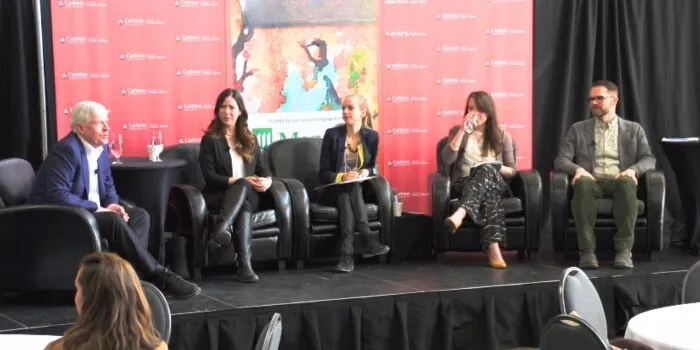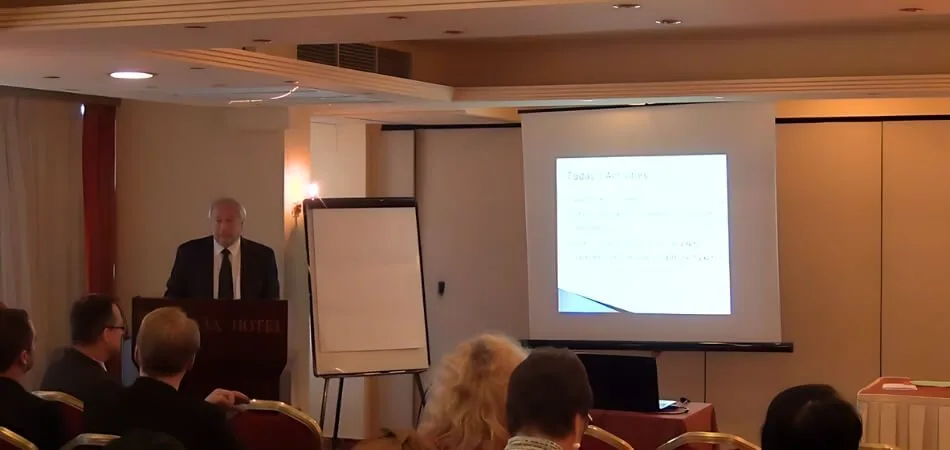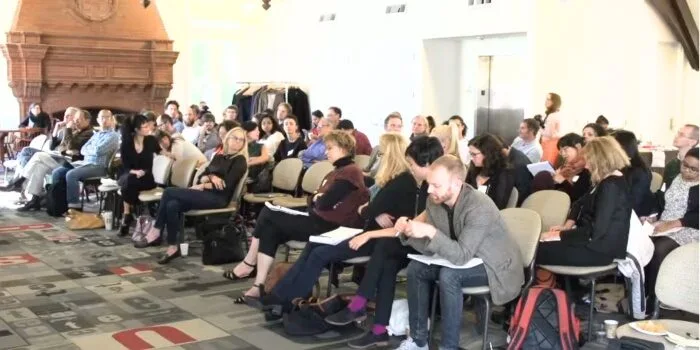Interested in attending a media and mass communication conference but unsure about the costs involved? You’re not alone! Media and mass communication conferences provide invaluable opportunities to network, learn about the latest industry trends, and gain insights from experts. They’re also a great way to present your work and make important connections. But the question is: How much does it cost to attend a media and mass communication conference?
The cost to attend a media and mass communication conference can vary widely, typically ranging from $100 to over $1,000, depending on factors such as location, duration, and the prestige of the event. Registration fees often cover access to sessions, workshops, and networking opportunities, but additional costs may include travel, accommodation, and meals. To manage expenses, attendees should consider early registration discounts, travel deals, and potential funding or sponsorship opportunities from academic institutions or organizations.
Let’s explore the factors influencing costs and how to budget effectively for such an event. Keep reading to learn more!
What You Need to Know About Media and Mass Communication Conference?
Media and mass communication conferences are the most important gatherings for professionals and enthusiasts alike, offering a platform to discuss, learn, and network within the industry. These events typically feature a wide range of topics, including journalism, broadcasting, public relations, advertising, and digital media.
For those attending media and mass communication conferences, these events offer a valuable opportunity to gain insights into the global media landscape, understand emerging trends, and network with professionals from around the world. They often include keynote speeches, panel discussions, workshops, and networking sessions, allowing attendees to improve their knowledge and skills while developing new professional relationships.
Additionally, these conferences provide a forum for showcasing research, projects, and innovations in the field, offering a chance to receive feedback and recognition from peers and experts. Attending an upcoming Media and Mass Communication Conference can be a transformative experience, opening up new avenues for collaboration, learning, and career advancement.
How Much Does it Cost to Attend a Media and Mass Communication Conference?
Media and mass communication conferences could be a rewarding experience if you attend them, but it’s essential to budget for the costs involved. On average you should budget from a few hundred dollars to a thousand dollars, depending on the type of conference, locations, and other relevant factors. We’ll explore the different costs associated with attending these conferences.
Registration Fees
The most basic cost of attending an international conference is the registration fee, which can range from $500 to $1000 per individual. The fee often includes access to all conference sessions, materials, and some meals.
Travel Expenses
Travel expenses can vary widely depending on your location and the location of the conference. Costs may include airfare, train or bus tickets, or fuel if you’re driving. Additionally, you may need to budget for transportation to and from the airport or train station.
Accommodation Costs
You’ll also need to budget for accommodation during the conference. This can range from staying in a hotel to renting a room through services like Airbnb. Prices can vary depending on the location and the level of comfort you require.
Meals and Incidentals
Don’t forget to budget for meals and other incidental expenses during the conference. This can include things like snacks, drinks, and any additional activities or excursions you plan to take part in.
Additional Costs
Depending on the conference, there may be additional costs to consider, such as pre-conference workshops, social events, or networking opportunities. It’s a good idea to check the conference website or contact the organizers for a full list of potential costs.
It can be a valuable investment to attend a media and mass communication conference in your professional development, but the importance lies in planning and budgeting for the various costs involved.
By considering registration fees, travel expenses, accommodation, meals, and any additional costs, you can ensure that you have a fulfilling and budget-friendly conference experience.
Benefits of Attending a Media and Mass Communication Conference
There are a range of benefits of attending a media and mass communication conference which can improve your professional development and career prospects. The key purpose of a Media and Mass Communication Conference is to bring together professionals, academics, and students to share knowledge, discuss current trends, and explore innovations in the field. Here are some key advantages of attending these conferences.
Networking Opportunities
Conferences bring together professionals, academics, and industry experts, providing an ideal environment to network, build relationships, and exchange ideas.
Knowledge and Skills Development
Conferences typically feature keynote speeches, panel discussions, and workshops that cover the latest trends, research, and best practices in the field, helping you stay updated and expand your skills.
Career Advancement
By attending conferences, you can showcase your expertise, learn about job opportunities, and connect with potential employers, which can improve your career prospects.
Exposure to New Ideas
Conferences expose you to new perspectives, innovations, and technologies in media and mass communication, stimulating creativity and innovation in your work.
Professional Recognition
Presenting your work or research at a conference can enhance your credibility and visibility within the industry, leading to professional recognition and opportunities for collaboration.
Generally, this kind of conference can be a valuable investment in your professional growth, offering opportunities to learn, connect, and advance in your career.
What are the Basic Agendas of a Media and Mass Communication Conference?
Media and mass communication conferences are packed with diverse agendas aimed at improving the knowledge and skills of attendees. These agendas vary depending on the theme and focus of the conference, but some common elements can be found across many events.
Here’s a breakdown of the basic agendas you can expect.
| Agenda | Motive |
| Keynote Speeches | Renowned speakers from the industry deliver keynote addresses, providing insights into the latest trends and issues in media and mass communication. |
| Panel Discussions | Panels comprising experts discuss various topics, offering different perspectives and facilitating interactive sessions with the audience. |
| Workshops | Hands-on workshops cover practical skills and techniques, allowing attendees to enhance their professional capabilities. |
| Paper Presentations | Researchers and practitioners present papers on their latest findings, contributing to the academic discourse and knowledge sharing. |
| Networking Sessions | These sessions provide opportunities for attendees to connect with peers, industry professionals, and potential collaborators, promoting professional relationships. |
| Exhibitions | Some conferences feature exhibitions where companies and organizations showcase their products, services, and innovations in the field. |
| Social Events | Social gatherings such as receptions, dinners, and parties offer informal settings for networking and relaxation. |
These agendas combine to create a comprehensive and engaging conference experience, providing attendees with valuable knowledge, skills, and connections in the field of media and mass communication.
Who Attends a Media and Mass Communication Conference?
Media and mass communication conferences attract a wide range of attendees, including professionals, academics, students, and industry enthusiasts. Here’s a closer look at who you might find at these events.
Professionals of the Sectors
Professionals working in various sectors of media and mass communication, such as journalism, broadcasting, public relations, advertising, and digital media, attend these conferences to stay updated on industry trends, network with event peers, and gain new insights and skills.
Academics of the Different Levels
Scholars and researchers in the field of media and mass communication attend these conferences to present their research, exchange ideas with peers, and stay informed about the latest developments in the academic discourse.
Students of Media and Communication
Students pursuing degrees in media and mass communication often attend these conferences. They find a media conference an ideal platform to learn from industry experts, network with professionals, and explore potential career paths.
Industry Enthusiasts
Individuals with a keen interest in media and mass communication, but not necessarily working in the field, also attend these conferences to learn, network, and gain insights into the industry.
Sponsors and Exhibitors
Companies, organizations, and vendors related to media and mass communication often sponsor or exhibit at these conferences to showcase their products, services, and innovations to a targeted audience.
Media and mass communication conferences unite various individuals passionate about the field, promoting dynamic learning, networking, and collaboration opportunities.
Tips to Find the Most Out of a Media and Mass Communication Conference
Here are some effective tips to maximize your experience at a Media and Mass Communication Conference.
- Plan Ahead
Research the conference agenda and identify key sessions, workshops, or panels that align with your interests. Create a schedule to ensure you don’t miss valuable discussions and presentations. Review the speaker list to familiarize yourself with industry leaders and experts you may want to connect with. - Network Actively
Take advantage of networking opportunities by engaging with fellow attendees, speakers, and exhibitors. Introduce yourself and exchange contact information, as these connections can lead to future collaborations or job opportunities. Attend social events or networking sessions to meet people in a more informal setting. - Participate in Discussions
Don’t hesitate to ask questions or share your insights during Q&A sessions. Active participation not only enriches your experience but also helps you stand out among your peers. Engaging in discussions can lead to meaningful conversations and deeper connections with industry professionals. - Take Notes
Document key takeaways, ideas, and insights from presentations and workshops. This will help you retain important information and provide a reference for future use. Consider summarizing your notes to identify themes or trends that emerge throughout the conference. - Utilize Social Media
Follow the conference’s official social media channels for updates and to engage with other attendees. Use conference hashtags to join online discussions and share your insights. This can enhance your visibility within the community and help you connect with others who share your interests. - Attend Workshops and Breakout Sessions
Participate in hands-on workshops and breakout sessions to gain practical skills and knowledge. These interactive experiences often provide valuable insights that can be applied directly to your work. Engage with facilitators and peers to enhance your learning.
Frequently Asked Questions
Are you curious about the costs of attending a media and mass communication conference? Explore some frequently asked questions and their answers here.
What is the Typical Registration Fee for Media and Mass Communication Conferences?
Ans. The registration fees for these conferences usually range from $100 to $500, depending on the event’s prestige and the included amenities. Early bird discounts may be available, offering reduced rates for those who register ahead of time.
What Additional Costs Should I Budget for Besides Registration Fees?
Ans. When planning to attend a media and mass communication conference, consider expenses such as travel, accommodation, meals, and any other incidental costs that may arise during the event.
Are There Any Ways to Reduce the Cost of Attending a Media and Mass Communication Conference?
Ans. Some media and mass communication conferences offer early-bird registration discounts or student rates. Additionally, sharing accommodation with others can help reduce the overall expenses.
What Are the Consequences of Not Budgeting Properly for A Media and Mass Communication Conference?
Ans. Failure to budget properly for a media and mass communication conference can result in financial strain and may restrict your ability to fully engage in the event’s activities.
Can I Find Financial Assistance or Sponsorships to Attend a Conference?
Ans. Many conferences offer scholarships, grants, or sponsorships to assist participants, especially students and early-career professionals. It’s advisable to check the conference’s official website for any available funding opportunities or application deadlines.
Final Thought
Attending a media and mass communication conference is a valuable but expensive investment. The total expense includes registration fees, travel, accommodation, meals, and other incidental costs. To manage these expenses better, you should consider early-bird registration discounts, shared accommodation options, and budgeting for meals and incidentals. Keep in mind the phrase “How much does it cost to attend a media and mass communication conference?” and plan accordingly.
Additionally, look for opportunities to reduce costs, such as carpooling or using public transportation. With careful planning and budgeting, you can make the most of your conference experience without breaking the bank.








